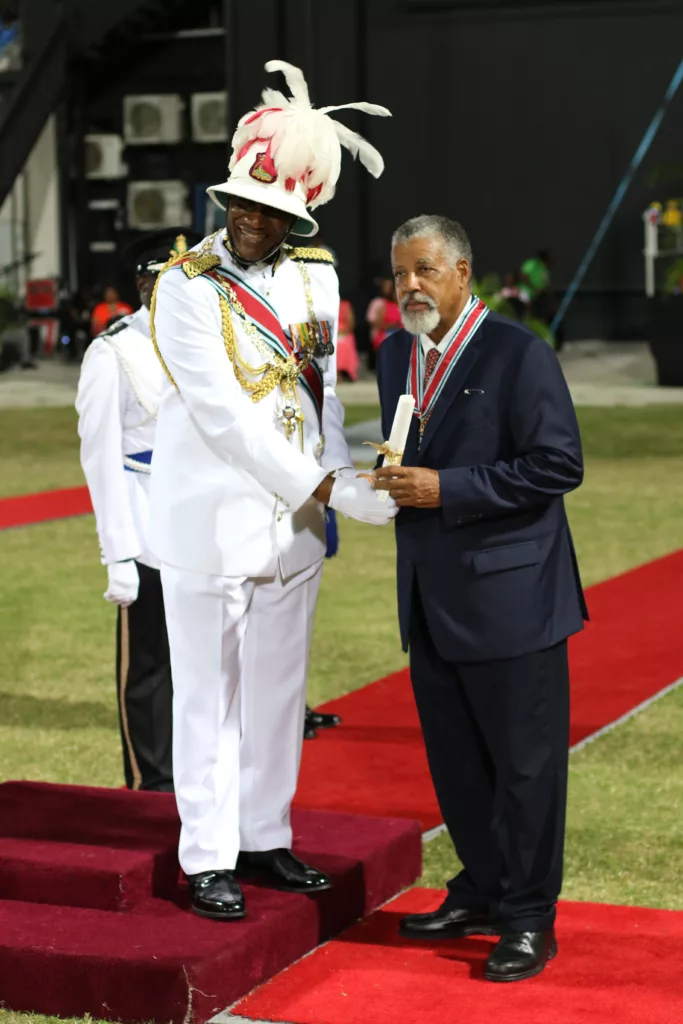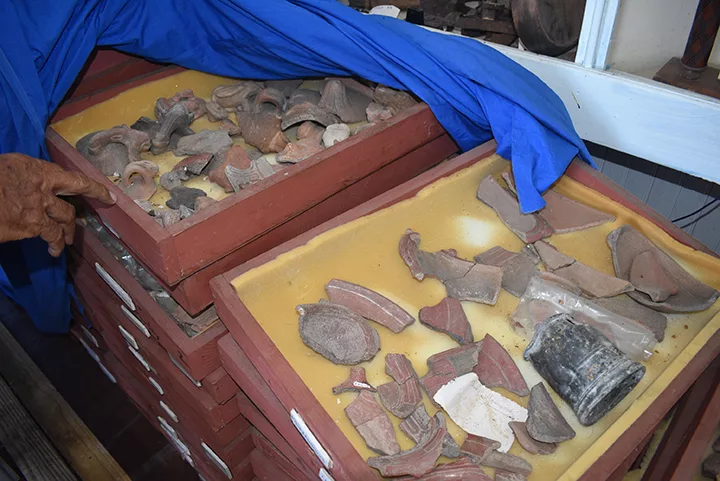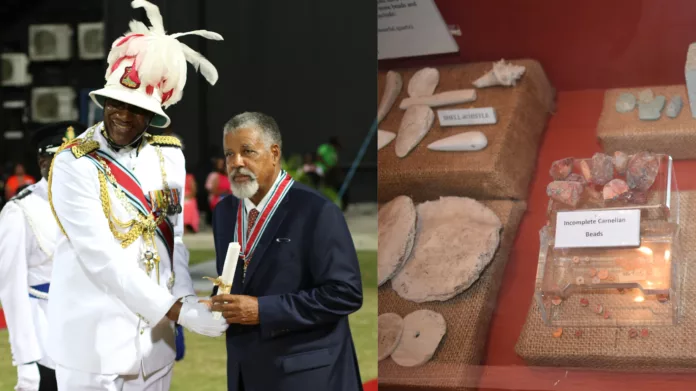By Charminae George
From petrified wood to shell beads, all the treasures found at the Museum of Antigua and Barbuda are there thanks to the dedication of archaeologists.
They constantly forego sleep to solve the mysteries of the past to educate us today and one of these archaeologists is Dr Reginald Murphy.
“I got involved in this simply because of the love of it. Not the love of the old time something, the love of the research…Everything has a story,” he told Observer, recently.
“It’s not about living in the past. We don’t want to live in the past. We just want to understand the past because that’s where the lessons are,” Dr Murphy added.

To be an archaeologist requires a great deal of patience, a passion for the field that surpasses the desire to make a lot of money, and the ability to take lots of constructive criticism from your peers. You also have to deal with quite a bit of non-constructive criticism.
“You take a lot of flak from people who think you’re just digging up old jumbie and you’re going to catch something…Most people will not understand what you do or never understand what you do,” he stated.
Across Antigua alone there are over 300 archaeology sites and, don’t worry, Barbuda isn’t left out. As a matter of fact, an animal that no longer exists locally was found over there a few years ago.
“Five years ago in Barbuda we found a big jaw section from a seal. The professors who were working with us in that study were Icelanders … They work in the Arctic so they knew. And so we go, ‘This is a weird looking dog’. They go ‘No, no that’s a seal’,” the archaeologist recounted.
Other bones of animals found locally that no longer exist include those of manatees, owls and flamingos. Bones of a small, barkless dog once indigenous to the island have also been found, which has a distinct trait of two missing premolars on each side of its jaw.
Fun fact, Antigua is quite fortunate to have soil that allows for organic material including food eaten such as fishbones and pieces of crab to be preserved.
The pH—a measurement of how acidic or alkaline something is—of the soil ranges from neutral to alkaline, meaning the organic material rots slower allowing for archaeologists to discover it.


I’m sure in the past you would’ve had a thought along the lines of ‘What happens if they discover ancient human remains during an archaeological dig?’ Well, it’s worth noting that archaeologists are not overly eager to search for those human remains just to dig them up.
However, in the event these remains are found during an archaeological excavation, there’s a specific protocol done.
“We excavate them, we study them intensely, you put them in special little wooden boxes. We have a set period of 25 years [it’s coming up soon]. At that period, we’re going to cut it off and bury them back,” Dr Murphy explained.
One thing in archaeological studies a person will learn is lithic analysis, which is essentially the study of stone tools. More specifically a method used to determine a residue found on a stone tool.
“I would put [it] in an ultrasonic kind of a machine and liquid with an agent that extracts residues from that tool…and you can identify what residue it is, whether it’s a plant or blood, from fish or human,” the archaeologist said.
Overall, the field of archaeology is one that is highly recommended by Dr Murphy.
“It’s fun. It’s addictive, but your mind never stops and every day you have a challenge and people calling with new mysteries…You present five times a year to different audiences and get feedback…You find solutions. You find people with similar questions,” he shared.
Additionally, he recommends that persons choosing to pursue archaeology should choose one of two routes.
The first is to become a university professor while the second option is to become a professional field archaeologist who does impact assessments of sites scheduled to be built on and recommends how best to preserve as much archaeological heritage as possible.
Archaeology, in simple terms, refers to the study of human activities in the past by utilising material remains, according to National Geographic Education.
Dr Murphy’s areas of expertise include construction project management, archaeology, architectural history, anthropology. His PhD is in archaeology from the University of Calgary in and his master’s degree in anthropology is from Trent University (both universities are in Canada).
In the 2013 national awards, he was awarded Grand Officer of the Most Precious Order of Princely Heritage (GOH). Then at this year’s national awards, he was awarded Commander of The Most Distinguished Order of the Nation (CN).
In addition, he was appointed as a Member of the Order of the British Empire by the late Queen Elizabeth the Second during her birthday honours ceremony in November 2018.

